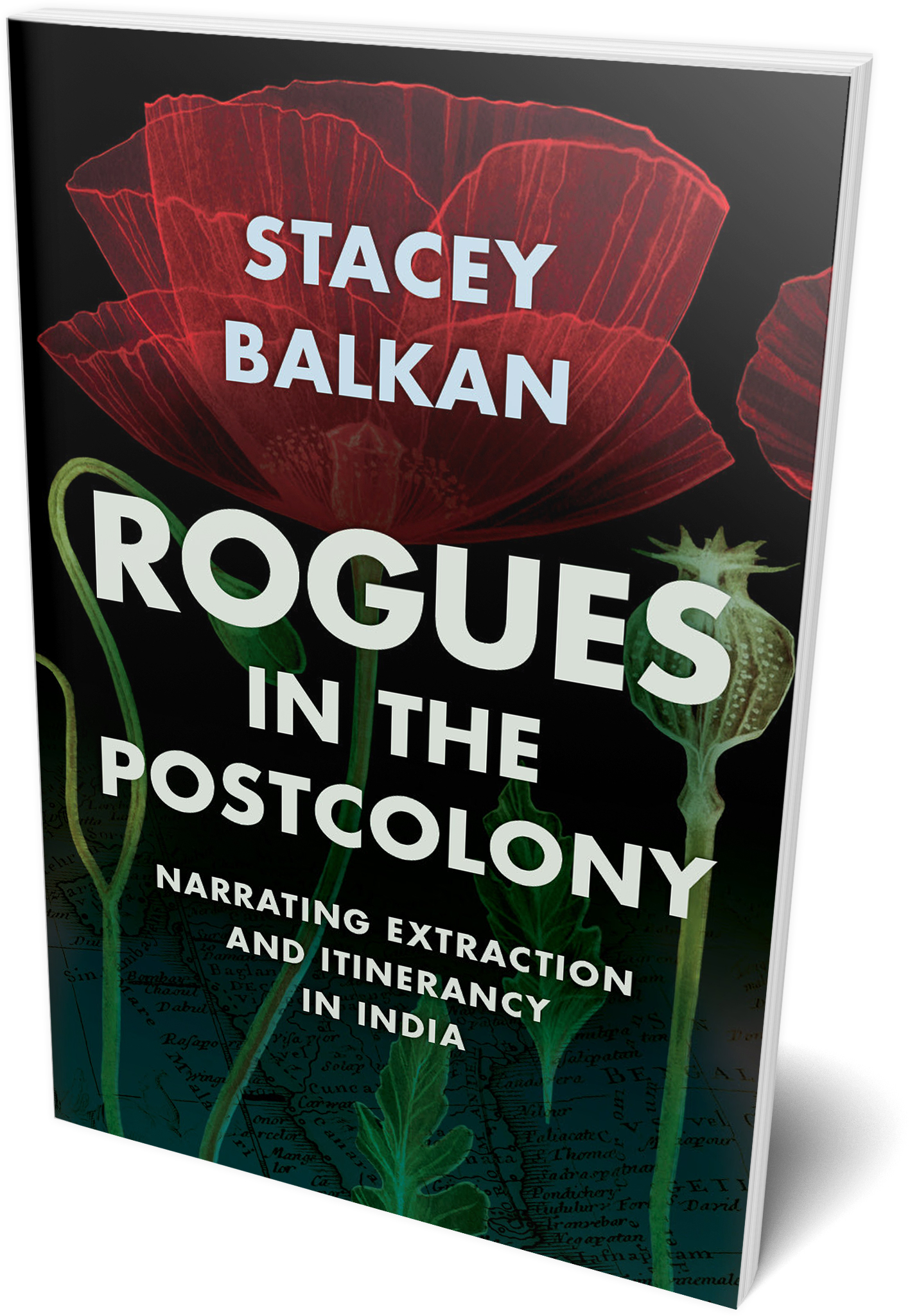Review of Stacey Balkan's Rogues in the Postcolony: Narrating Extraction and Itinerancy in India
Congratulations to Prof. Stacey Balkan on another fantastic review of Rogues in the Postcolony: Narrating Extraction and Itinerancy in India. The review—by Elizabeth Carolyn Miller—appears in Studies in the Novel, Volume 56, Number 1, Spring 2024, pp. 106-108.
From Miller's review:
Stacey Balkan’s Rogues in the Postcolony: Narrating Extraction and Itinerancy in India reads recent Indian novels in the context of rogue literature, making an argument about old genres of colonialism and displacement that remain vital today. The book’s central claim is that signature tropes of the sixteenth-century Spanish picaresque genre, along with similar rogue genres from the English-language tradition, have been picked up by contemporary Indian writers to communicate the conditions of environmental and social precarity that attend postcolonial life in the Global South. The book examines five novels by three Indian authors: Amitav Ghosh’s Ibis Trilogy (Sea of Poppies [2008], River of Smoke [2011], and Flood of Fire [2015]), Indra Sinha’s Animal’s People (2007), and Aravind Adiga’s The White Tiger (2008). Balkan’s approach to these novels is comparative across time and demonstrates the affordances of the picaresque to communicate postcolonial environmental and social violence in the contemporary global scene.
Balkan describes the “rogue in the postcolony” in these novels as a descendant of early modern progenitors such as “the itinerant ‘Lazarillo de Tormes’ (1554)...scraping by in the shadows of imperial Spain” (1). What do these characters have in common across the gap of centuries? Both are subject to social conditions of displacement and mass migration, produced in earlier historical periods by the enclosure of the commons and in more recent history by extractive capitalism among other forces. From such conditions come subaltern mobility and itinerancy, qualities that define the rogue figure in literature and shape the picaresque genres in which he (and it is usually a he) features. Balkan describes “extreme deprivation and forced itinerancy” as key “tropes of the picaresque genre that can be traced to the sixteenth-century Spanish tradition” but that also provide a “template for narrating life in the shifting topographies of late capitalism” (4). The precarity of life under late capitalism is only intensified and worsened by climate change, and part of Balkan’s goal in the book is to show the utility of longstanding picaresque forms and tropes for narrating life in an era of climate chaos. [ . . . ]
